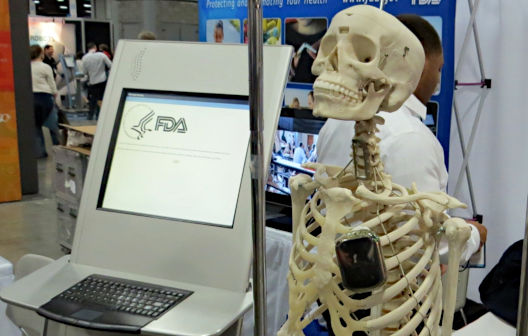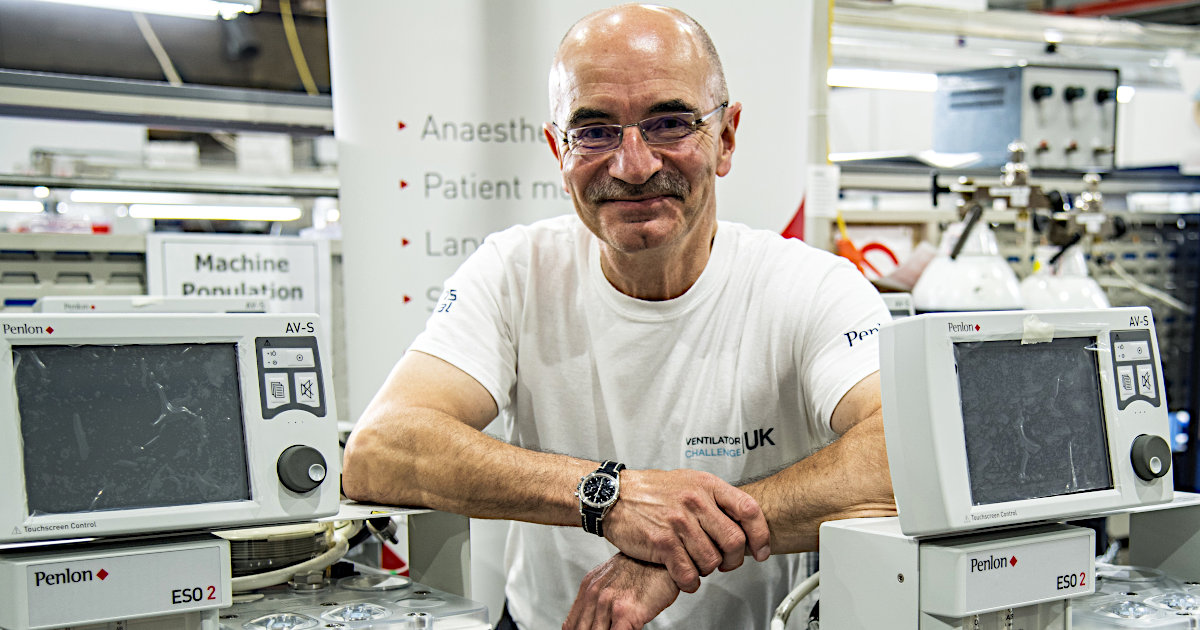image credit: This is Engineering, (Flickr)
Rare Metals Play a Strategic and Essential Role in Health
The COVID-19 pandemic has highlighted the fact that most countries do not have sufficient health sovereignty to face such a crisis. Shortages of masks, respirators, medicines and now vaccines were felt in many countries, even the most advanced. These problems show that our societies are dependent on certain countries for essential products.
But what about metals?
Our research team has been working for a few years on the interactions between earth sciences and social sciences, especially around the concept of social geology and the dynamics of resource-rich territories.
Strategic Metals
The notion of critical and strategic minerals goes back to the wars of the 19th century. At the end of the Second World War, the United States built up stocks of metals. However, the overabundance of metals at the end of the 20th century and globalization led western states to abandon their proactive policy in this field. Awareness of dependence on imported mineral resources did not return until the late 1990s, with the emergence of Asian economies and new monopolies.
The list of critical and strategic metals varies from country to country, ranging from a dozen for the French National Defense to the 35 metals listed in the decree of President Donald Trump in 2018.
Why do we have these lists of metals? They reflect the major issues of the past, those of the wars of the 20th century and the conflicts feared for the future. More generally, they mark the technological and social crises that have hit our societies during the past 50 years and which have led to what the German sociologist Ulrich Beck has called the risk society.
Each crisis has left in its wake new technological solutions, secure supply chains and an increased awareness of the dependence on various metals. Here are a few examples.
From Oil to Gold
In 1973, the oil crisis highlighted the energy fragility of most developed countries. Some countries turned to nuclear power, others to hydroelectricity. Uranium mines were put into production everywhere, from Saskatchewan to Niger. The price of ore soared in 1978 and production peaked in 1980.
The terrorist crisis of 2001 in turn accelerated the development of information technology in the defence industries and the consumption of high-tech metals increased accordingly. The price of tantalum reached its highest point in 2000 and world production peaked in 2004. This demand encouraged artisanal production in eastern Congo, which has been a centre of conflict for 20 years.
The nuclear crises following the 1986 Chernobyl and 2011 Fukushima accidents encouraged a shift to metal-intensive renewable energies, particularly wind power. The price of rare-earth elements exploded to a peak in 2010 and production doubled in the following decade.
Finally, in 2008, the financial crisis weakened global markets and led to a resumption of gold purchases, particularly by the Russian and Chinese central banks, which helped support the price of the precious metal.
It is therefore understandable that each crisis is accompanied by new needs in minerals and the need to secure these new metal sectors.
Metals and Health Issues
Metals have been used for human health for thousands of years. Ayurveda, a traditional medicine that has been practiced for 3,000 years in India, employs lead, mercury and arsenic to treat various ailments. Toxic in excessive quantities, these metals can, however, become indispensable in certain medicines and medical and orthopedic equipment.
Today, pharmacology uses more than a dozen metals or metalloids for various conditions: iron for anemia, bismuth, cobalt and nickel for gastric problems, lithium for depression, antimony for leishmaniasis, platinum or radioactive metals for cancer, arsenic for psoriasis. Gold can even help with the treatment of rheumatoid arthritis.
Metals are also widely used in prostheses: a mouth treated by a dental technician could contain up to 32 different metals! Medical imaging also uses many metals, from X-rays to nuclear medicine. Nuclear magnetic resonance (NMR) is based on rare-earth magnets, while 20 per cent of the world’s gadolinium is used for solutions that increase the contrast of NMR images.
Metals and the COVID-19 Crisis
And COVID-19? Metals are found in both the prevention and treatment of this new disease.
Copper has been a favorite for creating anti-microbial surfaces, which can reduce hospital outbreaks and kill viruses and bacteria in less than two hours. Zinc can boost the immune system and has already been used against viruses.
Thus, in addition to strategic metals at the heart of conflicts, there are
metals that are essential to health. The COVID-19 pandemic caused shortages of
hygiene and pharmaceutical products. Advanced medical equipment, full of
electronic components and therefore high-value metals, was sometimes lacking.
Most western countries depend on imported metals. It is therefore time to seriously discern what is really indispensable, what essential metals are in the health sector and how to guarantee their supply for use in the next health crises.
This article
was republished with permission from The
Conversation, a news site dedicated to sharing ideas
from academic experts. Written by:
Michel Jébrak, Professeur émérite en ressources minérales, Université du Québec à Montréal (UQAM)
Professeur, Laboratoire GeoRessources,
Université de Lorraine
Professeur des universités, laboratoire GeoRessources, Université de Lorraine
Suggested Content:

|

|
Pros and Cons of FDA Funded In Part by Companies
|
The Sustainability of Growing Margin Debt
|

|

|
NobleCon Healthcare Panel Discussion (Video)
|
NobleCon Natural Resources Panel Discussion (Video)
|
Stay up to date. Follow us:
 |
 |
 |
 |
 |
 |
Stay up to date. Follow us:
 |
 |
 |
 |
 |
 |


